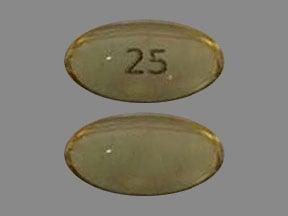
Zipsor Coupons & Savings Card – Discount Prices from $116.20
Brand for: Diclofenac potassium
My prescription
Edit
25MG, Diclofenac Potassium (60 Capsules)
Select pharmacy

CVS
$116.20
COUPON PRICE
Albertsons
$163.72
COUPON PRICE
Walgreens
$239.24
COUPON PRICE
Walmart
$785.87
COUPON PRICEZipsor savings card
Show this card to your pharmacist
CVS
$116.20
BIN
ID
PCN
GRP
019876
LH6E263174
CHIPPO
LHX
Powered by
Related NSAIDs prescriptions
More prescriptions for rheumatoid arthritis
Related NSAIDs prescriptions
More prescriptions for rheumatoid arthritis
Price history for Zipsor (brand) & Diclofenac Potassium (generic)
60 Capsules, 25MG
Average retail price for Zipsor
Average retail price for Diclofenac Potassium
Average SaveHealth price for Diclofenac Potassium
Our price history data is based on aggregated prescription data collected from participating pharmacies in America. Our prescription data updates daily to reflect the latest price changes. If you notice a missing data point, it means there wasn't sufficient data available to generate a monetary value for that date.
Over the last 12 months, the average discount price of Zipsor is $161.11 using the SaveHealth savings card. That's an average savings of 70.83% on Zipsor with our discount card.
*Retail prices are based on pharmacy claims data, and may not be accurate when we don't have enough claims.
Zipsor (Diclofenac Potassium) dosage forms
Dosage Quantity Price from Per unit 25MG 60 Capsules $116.20 $1.94 25MG 20 Capsules $50.93 $2.55 25MG 30 Capsules $67.25 $2.24 25MG 90 Capsules $165.15 $1.83 25MG 120 Capsules $214.10 $1.78
| Dosage | Quantity | Price from | Per unit |
|---|---|---|---|
| 25MG | 60 Capsules | $116.20 | $1.94 |
| 25MG | 20 Capsules | $50.93 | $2.55 |
| 25MG | 30 Capsules | $67.25 | $2.24 |
| 25MG | 90 Capsules | $165.15 | $1.83 |
| 25MG | 120 Capsules | $214.10 | $1.78 |
What is the drug ZIPSOR used for?
Zipsor is used for the relief of mild to moderate acute pain. It is a nonsteroidal anti-inflammatory drug (NSAID) that helps reduce inflammation and pain in the body.
What drug interacts with ZIPSOR?
Zipsor (diclofenac potassium) can interact with several types of medications. Some notable interactions include:1. Anticoagulants and Antiplatelet Drugs: Such as warfarin and aspirin, which may increase the risk of bleeding.2. ACE Inhibitors and Angiotensin II Receptor Antagonists: These can reduce the antihypertensive effect and may impair renal function.3. Diuretics: The effectiveness of diuretics may be reduced.4. Lithium: Zipsor can increase lithium levels, leading to toxicity.5. Methotrexate: It may increase the risk of methotrexate toxicity.6. Cyclosporine: There is an increased risk of nephrotoxicity.7. Selective Serotonin Reuptake Inhibitors (SSRIs): There may be an increased risk of gastrointestinal bleeding.Patients should consult their healthcare provider for a comprehensive list of potential interactions and to discuss their specific medication regimen.
Is diclofenac potassium a strong painkiller?
Diclofenac potassium is considered a nonsteroidal anti-inflammatory drug (NSAID) that is effective in relieving pain and reducing inflammation. It is commonly used for mild to moderate pain, such as that associated with arthritis, menstrual cramps, or acute injuries. While it is effective, it is not classified as a strong painkiller like opioids, but it is stronger than over-the-counter options like ibuprofen or acetaminophen.
Can you take ZIPSOR and Tylenol together?
Yes, Zipsor (diclofenac) and Tylenol (acetaminophen) can generally be taken together, as they work through different mechanisms and do not have known interactions. However, it is always advisable for individuals to consult with a healthcare provider before combining medications to ensure it is appropriate for their specific health conditions and circumstances.
What is an alternative to ZIPSOR?
An alternative to Zipsor, which is a nonsteroidal anti-inflammatory drug (NSAID) used for pain relief, could be other NSAIDs such as ibuprofen or naproxen. However, it is important for the individual to consult with a healthcare provider to determine the most appropriate alternative based on their specific medical condition and history.
